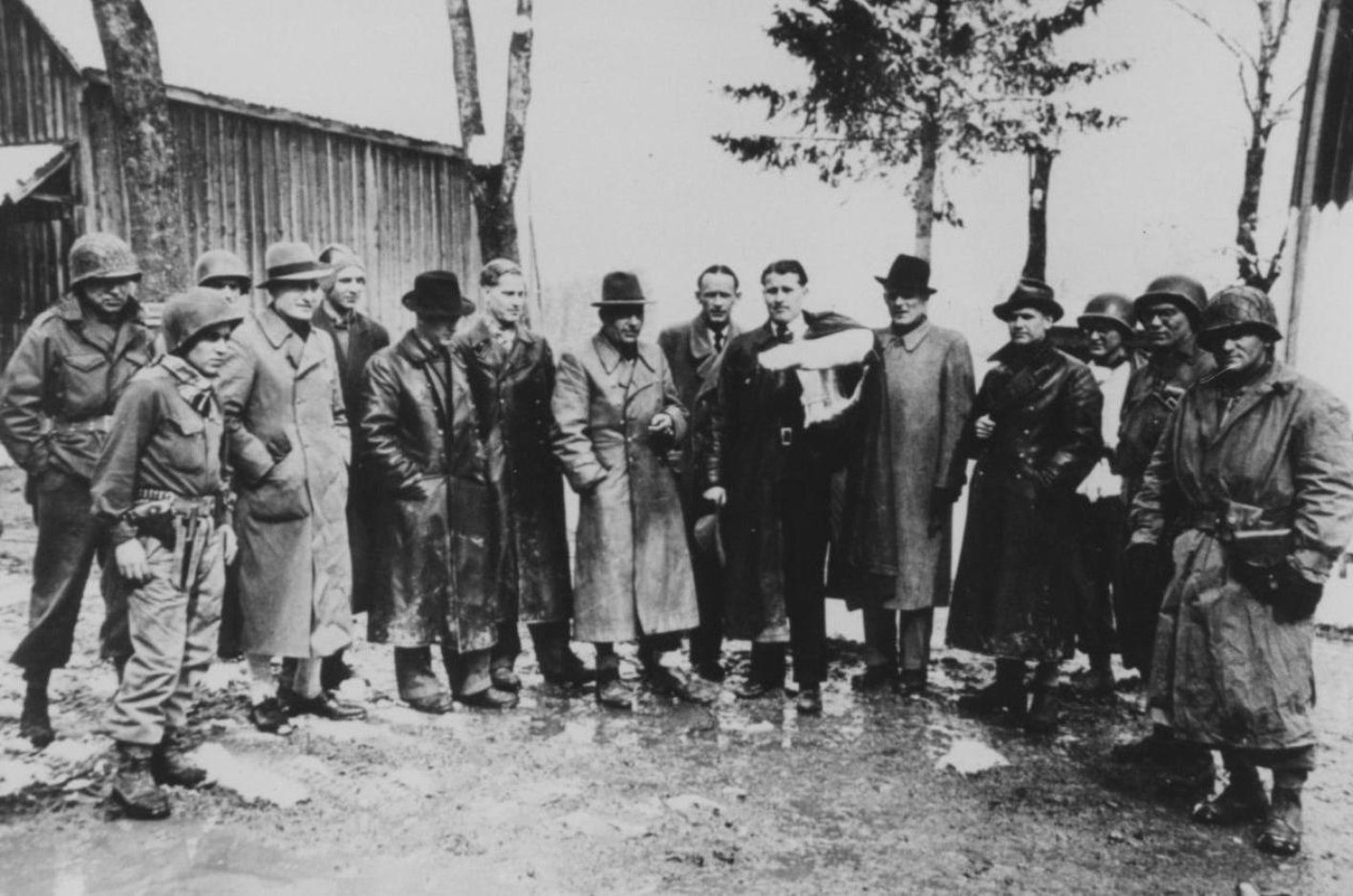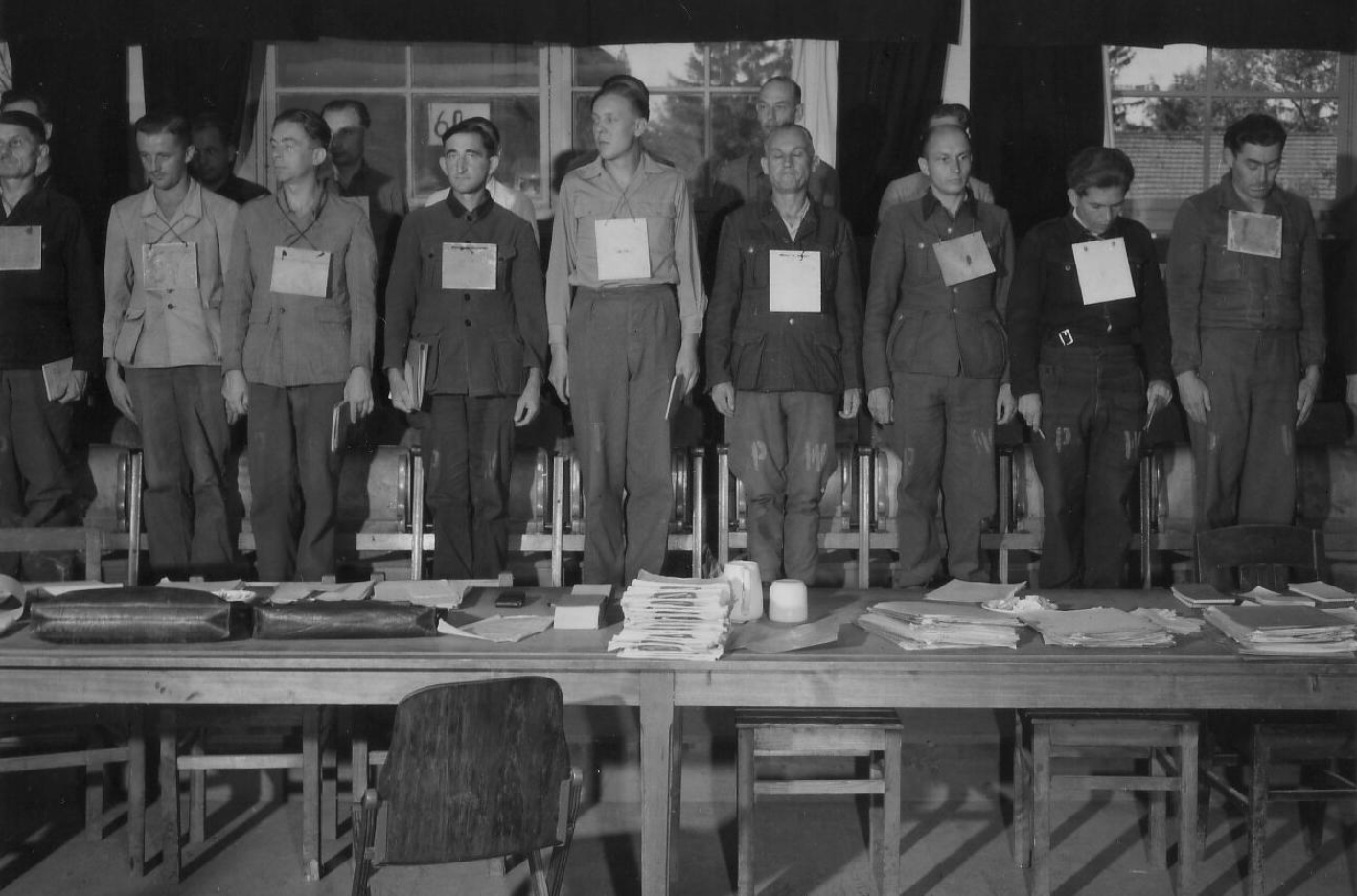

After the war, American, British and – later – Soviet rocket experts secured the construction plans and components of the A4 rocket found in the Mittelwerk. During the same period, Allied investigation committees worked to shed light on the crimes committed in the Mittelbau camps. In the Bergen-Belsen Trial of 1946 in the German town of Lüneburg, a British military court passed sentence on several members of the SS who had gone from Mittelbau-Dora to Bergen-Belsen in April 1945.
The largest trial against perpetrators from the Mittelbau-Dora concentration camp took place in Dachau in 1947. Eighteen members of the SS and kapos as well as Georg Rickhey, the former general director of the Mittelwerk factory, stood trial in the American military proceedings. In addition to one death sentence and several long-term prison sentences, there were also a number of acquittals, including that of Rickhey.
Rickhey had been among the several dozen engineers and managers who had entered service for the Americans in 1945. They were headed by Wernher von Braun and Arthur Rudolph, who initially carried on with the design of rocket weapons in the U.S. and later, in the 1960s, directed the American lunar expedition programme. Other Mittelwerk engineers worked for the Soviet rocket programme from 1945 onward.
Like the majority of the rocket engineers, many of the construction experts who had been involved with the Mittelbau-Dora concentration camp were able to continue their careers without interruption after the war. Only very few of them were held accountable for the forced labour and the crimes committed against the inmates.

